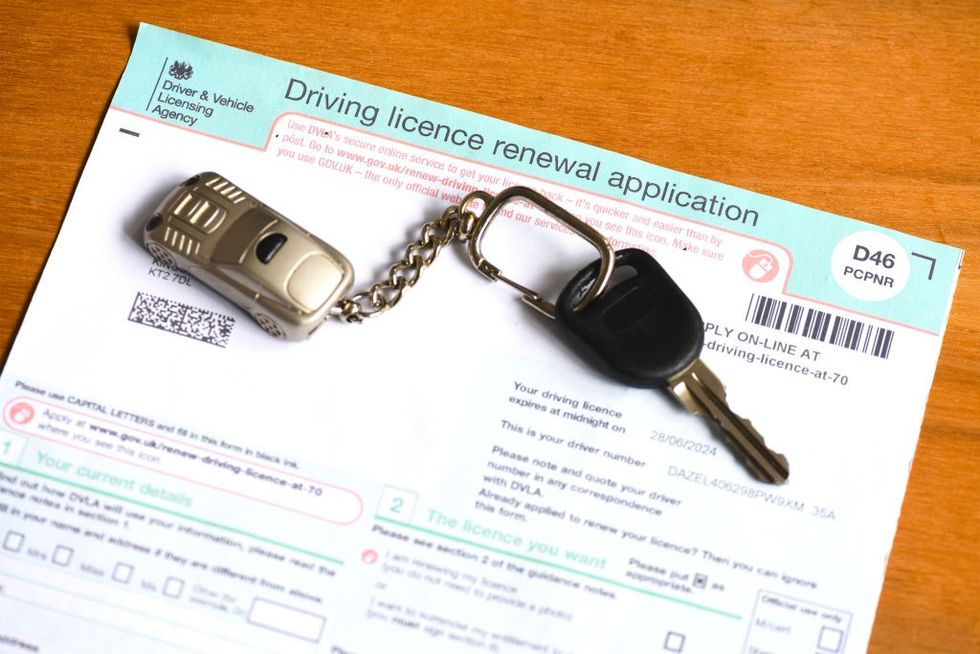Elderly drivers risk brutal £1,000 fine for failing to disclose medical conditions to DVLA

Drivers are being warned that they could face fines of up to £1,000 and risk prosecution if they fail to inform the DVLA about certain medical conditions.
The warning comes after research revealed many motorists may be unaware of their legal obligation to report health conditions that could affect their driving ability.
The DVLA maintains a comprehensive list of 110 conditions which can impact driving abilities, ranging from diabetes to heart conditions. If a driver has a condition listed, they must report it.
A recent survey found that 25 per cent of respondents knew an older driver who they believed shouldn’t be on the road due to medical conditions.
Do you have a story you’d like to share? Get in touch by emailing motoring@gbnews.uk

Car insurance expert Greg Wilson from Quotezone.co.uk explained that drivers could find themselves uninsured and vulnerable if they don’t report relevant medical conditions.
He said: “Although fear of losing independence and transport can be devastating, it is vital to report any recent medical diagnosis to the DVLA if it will affect driving abilities. It’s important for drivers to stay safe and be on alert for any changes to their health, and if in any doubt, speak to the DVLA directly.”
The survey also revealed that 27 per cent of respondents believe annual medical check-ups and additional driving tests should be mandatory for drivers over 70. Drivers must also ensure their insurance providers are kept updated to maintain valid coverage.
Heart conditions, particularly arrhythmia, must be declared as they can impact a driver’s ability to stop safely. For epilepsy sufferers, drivers must be seizure-free for 12 months to keep their licence. If a seizure occurs while awake, their licence will be revoked with a possible reinstatement after six months with medical approval.
Following a stroke, drivers must wait one month before returning to driving and must inform the DVLA of any ongoing health conditions lasting beyond 30 days.
These conditions can significantly affect driving abilities and failure to report them could result in prosecution, the expert warned. The DVLA also requires immediate notification of any diagnosis which could impair driving safety.
Additional medical conditions requiring DVLA notification include blackouts and fainting spells, while severe visual impairment in one or both eyes must be reported.
Drivers taking medication should be particularly cautious, as many common drugs can affect driving ability. Painkillers, tranquillisers and some antidepressants can cause drowsiness and delayed reaction times.
Following surgical procedures, especially those involving the brain, heart, eyes or legs, drivers may be temporarily restricted from driving. Doctors should provide specific guidance about driving restrictions following hospital procedures.
Motorists can check if they need to inform the DVLA about their condition through specific forms and questionnaires available online. The address for submission is provided on the relevant forms, with different documentation required for various conditions and disabilities.
Drivers who are unsure about their reporting obligations should contact the DVLA directly for guidance. Drivers must also surrender their licence if their doctor advises stopping driving for three months or more.
Licence surrender is also required if a medical condition affects driving safety for over three months or if the driver no longer meets required health standards. Motorists can apply to have their licence reinstated once they meet the medical standards for driving again.
LATEST DEVELOPMENTS:
- Petrol and diesel drivers risked ‘significant cost of living issue’ without Rachel Reeves fuel duty freeze
- Electric scooters could be legalised across the UK despite road safety fears – ‘It’s clearly required’
- M6 chaos: Overturned lorry causes severe 90-minute delays and miles of traffic on busy motorway

For motorists aged 70 or over, they must also declare any notifiable conditions when applying for their first licence or during renewal.

